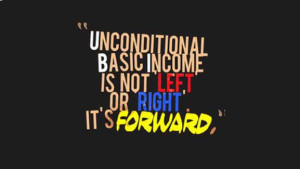 MANA Rotorua recently hosted a talk by Lowell Manning of Basic Income NZ who explained how an unconditional basic income would work. With more and more jobs disappearing because of new technology, this is an idea whose time is definitely coming. Both MANA and the Greens include it in their policies, and several countries in the EU, notably Finland and Hungary are giving the idea serious consideration as a way out of their financial troubles.
MANA Rotorua recently hosted a talk by Lowell Manning of Basic Income NZ who explained how an unconditional basic income would work. With more and more jobs disappearing because of new technology, this is an idea whose time is definitely coming. Both MANA and the Greens include it in their policies, and several countries in the EU, notably Finland and Hungary are giving the idea serious consideration as a way out of their financial troubles.
It’s broadly similar to NZ Superannuation. Put simply, everyone receives a very basic living wage as of right with small adjustments for age and special circumstances, and work becomes a free choice for those who want more money. That basic wage is tax-free and a higher tax rate is charged on other earnings.
Most of the audience weren’t from MANA, probably because it clashed with a preview screening of the film Mahana we didn’t know about until it was too late. In some ways that was good because there was more time to hear from thinking members of other community organizations who knew our existing ways of doing things aren’t working and are looking for answers.
A UBI can’t work on its own, there would need to be big changes to financial systems and taxation before its full benefits became possible. There are other compelling reasons for those, not the least being big issues like the uncontrolled rise in house prices and the downward spiral in wages with an increasing demand for community services being half-filled by unpaid volunteers.
Lowell explained most resistance to change comes from mistaken ideas about what money actually is and the belief that it’s somehow handed down from on high and has to be earned. That isn’t actually true, almost all the money in existence was created out of nothing by the banking system who control its distribution and reap the benefits. That process is skewed towards making the rich richer at the expense of everyone else, particularly low-income people. That is the major reason inequality is growing everywhere with all the evils that accompany it.
There is of course opposition to a UBI from those who know that this idea would threaten their power and wealth. That is to be expected but they claim it would cause problems with investment, banking and trade, using economic jargon that is difficult to follow and therefore difficult to argue against. When studying those arguments it is good to remember that people who think they should be getting a better deal than anyone else can invent extremely clever reasons, and the harder they are to understand the better.
Lowell Manning is an economist so much of the material on his website is technical, but the basic idea is simple to understand. Give everyone more freedom of choice in how they spend their lives and good things will happen. If you don’t believe that look at the retired people you know, think about how much they do for others, multiply by about 10 and you’ll have some idea of what our communities could be like if more of us didn’t have to spend so much time and effort making other people rich.
For those who want to study his website it’s http://www.basicincomenz.org/
There’s also a thoughtful article on money at http://thestandard.org.nz/real-monetary-reform/
